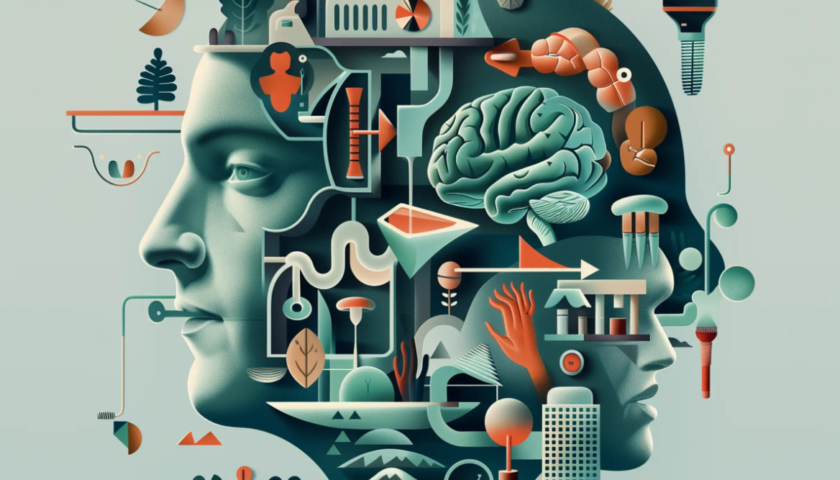In our modern and hectic world, stress has become an unavoidable aspect of our daily lives. It arises from numerous sources, such as work pressures, financial worries, relationship conflicts, and personal struggles. While we commonly associate stress with its impact on mental well-being, it raises the question: Can stress extend its reach to affect our physical health? Can it negatively affect our mental health?
Stress and Physical Illnesses
Before we examine the link between stress and illness, it is crucial to understand what stress is. Stress is the body’s response to external pressures, triggering a cascade of physiological changes designed to prepare us for a fight-or-flight response. While short-term stress can be beneficial in certain situations, chronic or long-term stress can have adverse effects on our well-being.
When we encounter a stressful situation, our body releases stress hormones such as cortisol and adrenaline. These hormones increase heart rate, elevate blood pressure, and boost glucose levels in the bloodstream. These changes are intended to provide an immediate burst of energy and heightened alertness.
However, if the stress response is constantly activated, it can take a toll on our physical health. Chronic stress has been associated with a range of conditions, including cardiovascular diseases, a weakened immune system, gastrointestinal problems, sleep disorders, and mental health issues such as anxiety and depression. The link between stress and physical illness is not a mere coincidence; scientific studies have revealed the intricate mechanisms underlying this connection.
Stress and the Immune System
One crucial aspect of stress-related illness is its effect on the immune system. Prolonged stress can suppress the immune system, making individuals more susceptible to infections, allergies, and autoimmune disorders. Research has shown that chronic stress can impair the functioning of immune cells, leading to increased inflammation and a decreased immune response.
Furthermore, stress can also influence the healing process. Studies have indicated that wounds take longer to heal in individuals experiencing chronic stress. The stress hormones released during the stress response can interfere with the production of collagen, a vital component for wound healing, thus prolonging the recovery period.
Stress and Cardiovascular Health
Another area where stress takes a significant toll is cardiovascular health. The constant activation of the stress response can lead to elevated blood pressure, an increased heart rate, and narrowed blood vessels. Over time, these factors contribute to the development of hypertension, atherosclerosis, and an increased risk of a heart attack or stroke.
Additionally, chronic stress can lead to unhealthy coping mechanisms such as overeating, smoking, or excessive alcohol consumption, which further exacerbate the risk of cardiovascular problems. The combination of physiological changes and detrimental behaviors creates a perfect storm for cardiovascular disease development.
Stress and Mental Health Conditions
Stress has significant effects on our mental health, often resulting in a range of emotional and psychological challenges. When we experience stress, it can take a toll on our overall well-being, impacting various aspects of our mental health.
Stress and Anxiety
Anxiety is a prevalent and often debilitating effect of stress on mental health. When we encounter stressful situations, it can ignite a cascade of worries, fears, and unease that may persist long after the stressor has subsided.
The chronic anxiety associated with stress can have a pervasive impact on various aspects of our well-being. It can impede our ability to concentrate and focus, making it difficult to stay attentive and productive. Simple tasks that were once effortless may suddenly become overwhelming, leaving us feeling paralyzed by a constant sense of apprehension.
Furthermore, stress-induced anxiety can hinder decision-making processes, leading to second-guessing and indecisiveness. The fear of making the wrong choices can amplify the overall sense of unease and intensify the burden of stress on our mental state.
Stress and Depression
Depression often goes hand in hand with stress, as prolonged exposure to stressors can significantly impact our mental health. When stress persists over time, it can drain our energy reserves, disrupt our sleep patterns, and diminish the sense of fulfillment we once derived from activities. As a result, feelings of sadness, hopelessness, and a profound loss of interest in previously enjoyable pursuits can take hold.
The debilitating effects of stress-induced depression can be all-encompassing, affecting our motivation, concentration, and overall quality of life. Fatigue becomes a constant companion, making it difficult to muster the energy required to engage in daily tasks. Even the simplest activities may feel like arduous challenges as the weight of sadness and hopelessness looms overhead.
Stress can also influence cognitive functioning. It affects our ability to concentrate, remember information, and make decisions. When stress becomes chronic, it can impair our cognitive abilities, leading to difficulties in problem-solving, decreased productivity, and heightened frustration.
Managing Stress
Recognizing the profound impact of stress on our physical and mental well-being, it becomes imperative to prioritize effective stress management strategies in our lives. Although it may be impossible to completely eradicate stress from our lives, there are numerous techniques that can help alleviate its adverse effects and promote a healthier, more balanced state of being.
Regular Exercise
One of the most powerful tools for managing stress is regular exercise. Engaging in physical activity not only helps to release tension and reduce the physical symptoms of stress, but it also stimulates the production of endorphins, which are natural mood-enhancing chemicals. Whether it is going for a walk, practicing yoga, or participating in team sports, finding an exercise routine that suits your preferences can significantly contribute to stress reduction.
Meditation and Mindfulness
Meditation and mindfulness practices have gained significant recognition for their effectiveness in stress management. Taking time to quiet the mind, focus on the present moment, and cultivate a sense of inner calm can have a profound impact on our overall well-being. Regular meditation practice has been shown to reduce stress, improve concentration, and enhance emotional resilience.
Deep Breathing Exercises
Deep breathing exercises are simple yet powerful techniques that can be practiced anywhere, anytime. By taking slow, deep breaths and focusing on the rhythm of our breath, we can activate the body’s relaxation response and counteract the physiological effects of stress. These exercises help calm the nervous system, reduce muscle tension, and promote a sense of tranquility.
Hobbies and Interests
Engaging in hobbies and activities that bring joy and fulfillment can serve as effective stress outlets. Whether it’s painting, gardening, playing an instrument, or engaging in creative writing, dedicating time to activities that bring us pleasure allows us to disconnect from stressors and cultivate a sense of enjoyment and relaxation.
Social Support
Seeking support from friends, family, or mental health professionals is essential to managing stress. Sharing our concerns and experiences with trusted individuals can provide valuable insights, encouragement, and a sense of validation. Professional guidance can offer specialized strategies and support tailored to our individual needs.
Reminder
Stress has far-reaching effects on both our physical and mental health. It can lead to a wide range of physical symptoms and ailments, weaken the immune system, and contribute to the development or exacerbation of mental health disorders. Recognizing the impact of stress on our well-being and adopting healthy coping mechanisms is essential for maintaining optimal health and resilience in the face of life’s challenges.
If you or someone you love is struggling with managing stress, visit Mindshift Psychological Services. Check out their website to learn more about their therapy and counseling sessions. You can contact them at (714) 584-9700 to schedule an appointment.





